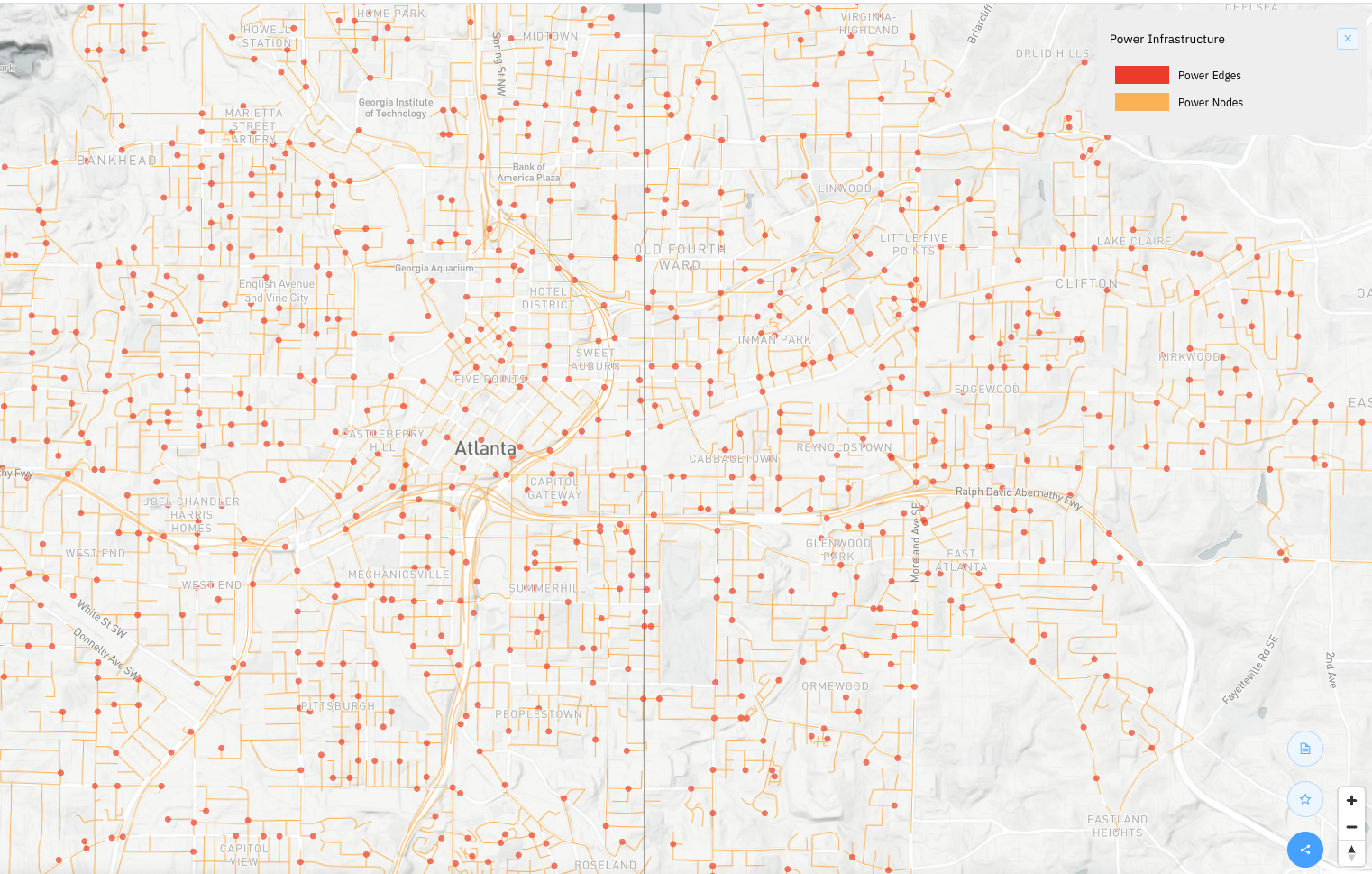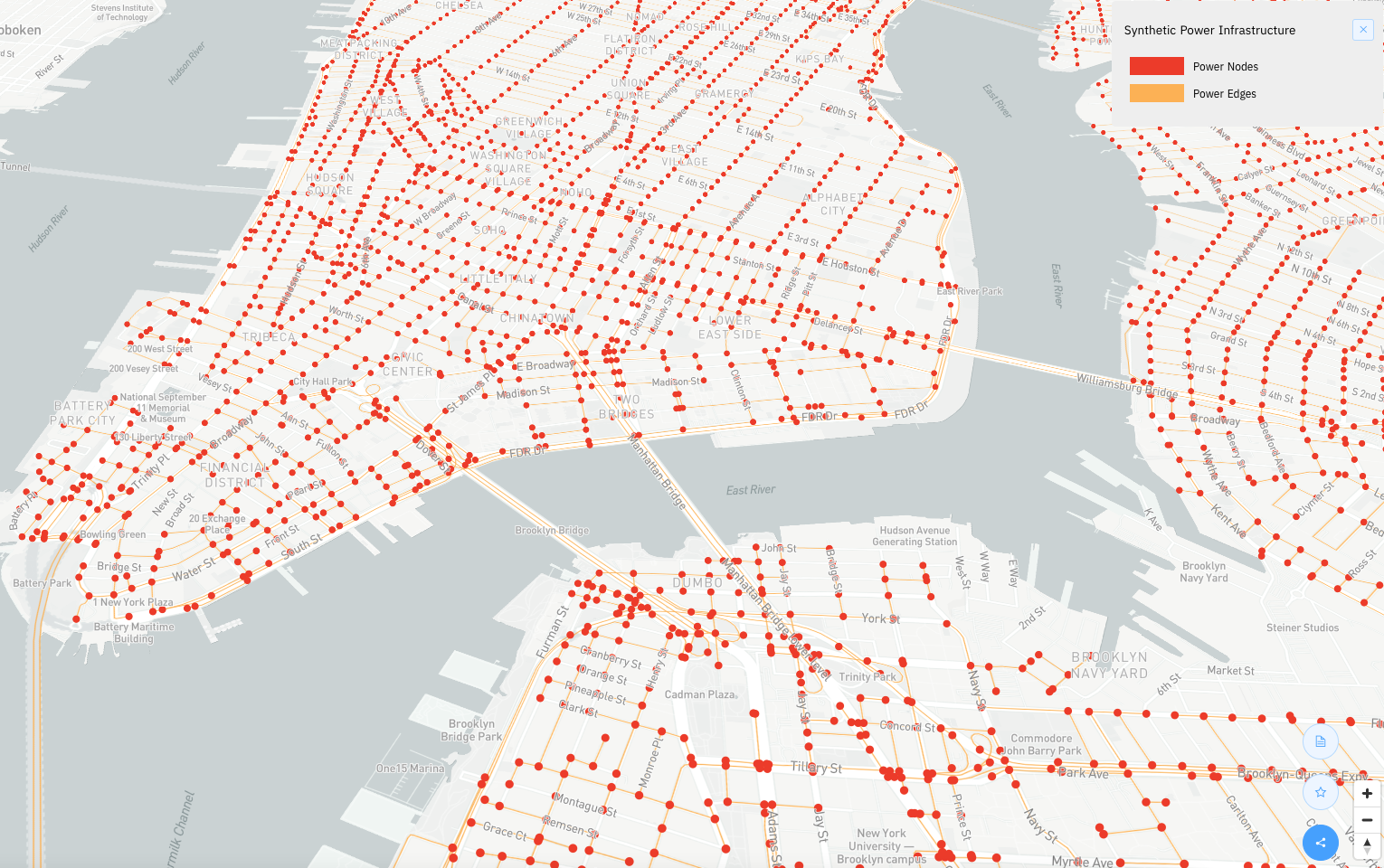Synthetic Infrastructure Solutions to Improve the Sustainability of Energy Infrastructure Systems
This initiative brings together researchers at the Urban Systems Lab, Arizona State University (ASU) and Georgia State University (GSU) to co-develop synthetic infrastructure models for Phoenix, New York City and Atlanta that will simulate critical failure in energy distribution systems and potential cascading impacts on other power, water, and transportation infrastructure during extreme events to optimize solutions, and improve reliability and robustness.
The custom coded synthetic infrastructure modeling environment (SyNF model) links multiple data sources to ultimately generate new synthetic energy network data that attempts to mimic real-world energy networks and therefore not only fills energy network data gaps, but provides the novel ability to examine failure scenarios and their cascading impacts to other energy dependent infrastructure networks.
The effort will seek to answer the following research questions:
How can new and emerging data and modeling approaches, such as synthetic infrastructure modeling, be used to diagnose energy system vulnerabilities, reveal potential for cascading failure that impacts energy and connected power, water, and transportation infrastructure?
Additionally, how vulnerable are critical energy infrastructure components from internal or external disruptions such as extreme weather and climate? How can these new modeling approaches generate new knowledge to drive development of more adaptive urban energy infrastructure design?
Support provided by the Sloan Foundation.


